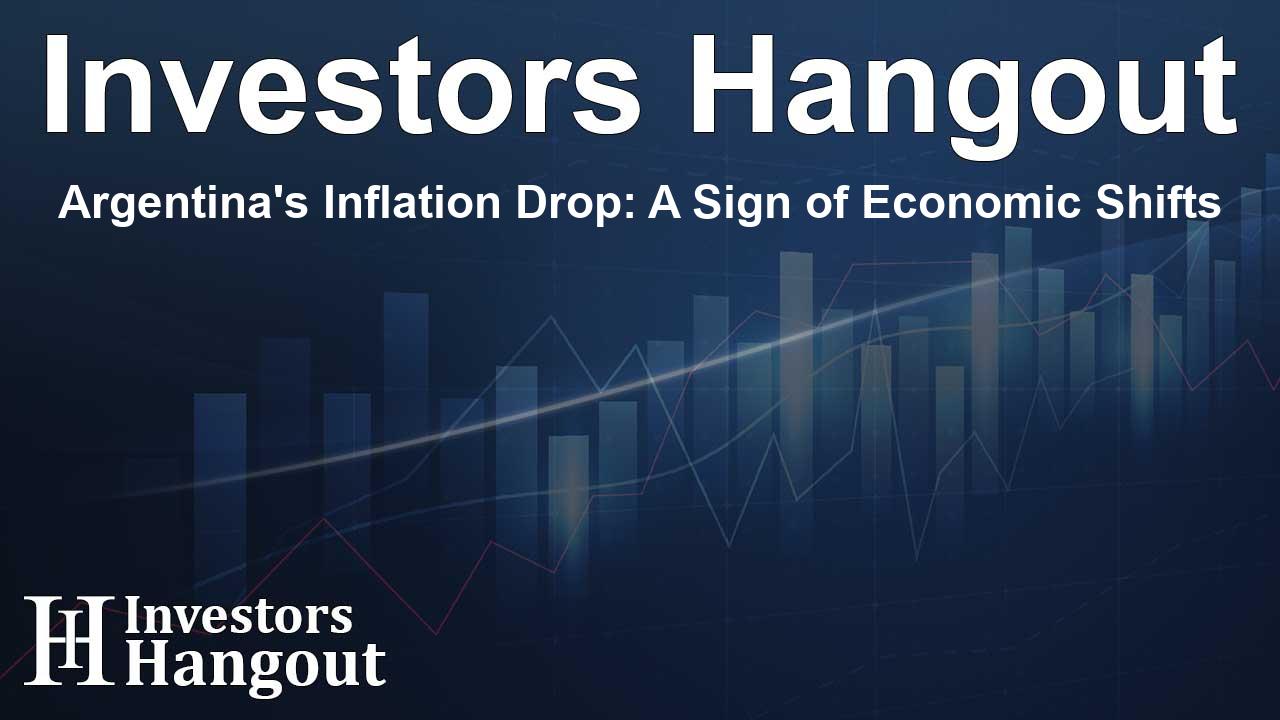Argentina's Inflation Drop: A Sign of Economic Shifts

Argentina's Inflation Rate Reaches 31-Month Low
Argentina is experiencing a noteworthy shift in its economic landscape, as the monthly inflation rate has been projected to drop to 3.9% in August. This information comes from a recent poll of economists, illustrating a significant moment for the country as it announces its lowest inflation rate since early 2022.
Economic Implications of the Inflation Decrease
This decrease is seen as a positive sign for the government led by libertarian President Javier Milei, who has committed to controlling skyrocketing prices. However, many experts caution that while any reduction is a step forward, achieving lasting results is proving to be a challenge.
Factors Influencing Inflation Rates
One of the major contributors to the recent inflation metrics is the increase in consumer prices, which has been largely driven by rising service and transportation costs. This observation was highlighted by analysts who participated in the poll, providing insights on local and international trends affecting Argentina's economy.
The Role of Regulated Prices
According to the Fundacion Libertad y Progreso (LyP), regulated prices, particularly in the sectors of utilities and public transportation, have played a critical role in pushing the inflation index higher. Increases in the costs of electricity, gas, and transport have pressured the overall inflation rates.
Inflation Projections and Economic Outlook
While projections varied among experts, the survey indicated a range from a low of 3.4% to a high of 4.4%, with a median and mean average estimate sitting at 3.9%. These numbers reflect a complex economic environment, as the right-wing economist Javier Milei has assumed office since December.
Since his establishment in power, inflation had been on a declining trend, tapering from 25.5% in December to figures around 4.0% in July. Nevertheless, some analysts believe this trend may be hitting a plateau, as the pace of reduction seems to be slowing.
Challenges Ahead for Argentina's Economy
The consultancy EcoGo has noted that the progress in inflation reduction appears to be leveling off, with core inflation remaining stagnant at approximately 4% since May. This stagnant phase adds complexity to the path ahead for the government and underscores the lessons learned in economic steering.
Upcoming Measures and Expectations
Looking forward, September may usher in more optimistic developments pertaining to inflation. The government recently announced a tax cut on imports and freight, reducing the tax rate from 17.5% to 7.5%. Economists are hopeful that this measure could positively influence the prices of imported goods as well as impact sectors that utilize imported materials.
Expert Insights on Economic Changes
Aldo Abram, the director at LyP, emphasized the anticipated effects of this tax reform, suggesting it could relieve some pressure on imported goods' pricing and, indirectly, offer some respite to service costs. This could provide an advantageous ripple effect across various sectors of the economy.
As Argentina's national INDEC stats agency prepares to unveil the official inflation figures for August, stakeholders from all corners express their keen interest in how these numbers will reflect ongoing changes in the economic framework and the government's policies.
Frequently Asked Questions
What is the current inflation rate in Argentina for August?
The inflation rate in Argentina for August is projected to be 3.9%, marking a significant decrease.
How has President Javier Milei addressed inflation?
President Javier Milei's administration aims to control inflation through various economic policies, including recent tax cuts.
What factors are contributing to Argentina's inflation levels?
Higher service and transportation costs, along with regulated price increases, are significant contributors to the country's inflation levels.
What are economists saying about the future of inflation in Argentina?
While there are optimistic signs, many economists express concerns regarding the stagnation of core inflation around 4% since May.
What monetary policy changes are expected in September?
September is expected to see an impact from a recent reduction in import and freight taxes aimed at alleviating price pressures.
About Investors Hangout
Investors Hangout is a leading online stock forum for financial discussion and learning, offering a wide range of free tools and resources. It draws in traders of all levels, who exchange market knowledge, investigate trading tactics, and keep an eye on industry developments in real time. Featuring financial articles, stock message boards, quotes, charts, company profiles, and live news updates. Through cooperative learning and a wealth of informational resources, it helps users from novices creating their first portfolios to experts honing their techniques. Join Investors Hangout today: https://investorshangout.com/
Disclaimer: The content of this article is solely for general informational purposes only; it does not represent legal, financial, or investment advice. Investors Hangout does not offer financial advice; the author is not a licensed financial advisor. Consult a qualified advisor before making any financial or investment decisions based on this article. The author's interpretation of publicly available data shapes the opinions presented here; as a result, they should not be taken as advice to purchase, sell, or hold any securities mentioned or any other investments. The author does not guarantee the accuracy, completeness, or timeliness of any material, providing it "as is." Information and market conditions may change; past performance is not indicative of future outcomes. If any of the material offered here is inaccurate, please contact us for corrections.